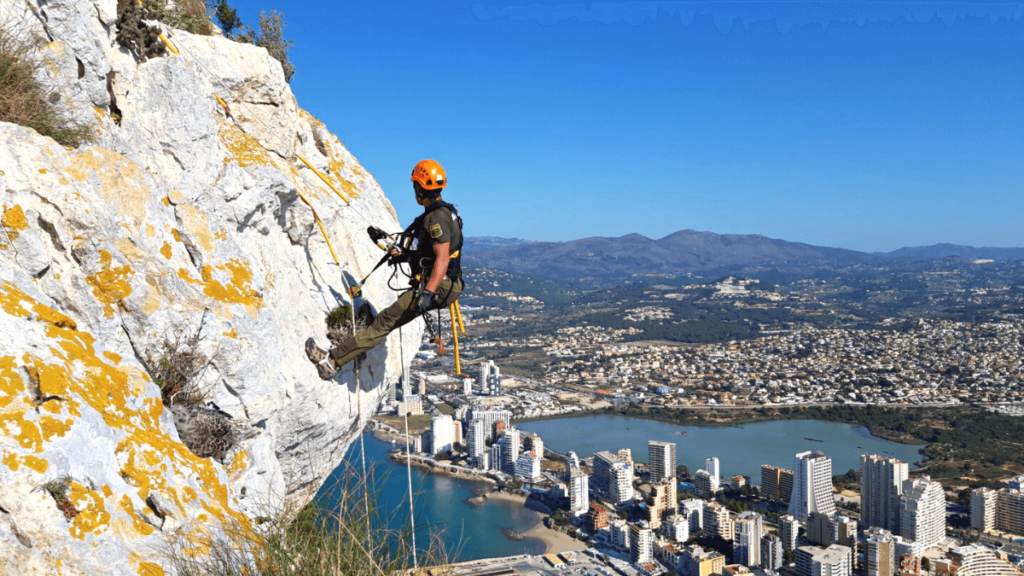In many places, rangers in Spain are currently mainly concerned with the consequences of droughts and the prevention, investigation and extinguishing of forest fires. We wanted to know how they are handling this, what other ranger issues they are dealing with and what Europe’s rangers can learn from them.
Read our interview with Borja Díaz, ranger and spokesperson of the Spanish Ranger Association AEAFMA, from our series with the national ERF member associations.
Which are the topics rangers in Spain are currently dealing with?
Currently, due to climate change, most of Europe suffers from heat waves, dry spells, droughts that cause forest fires, habitat loss and much more. Spanish rangers are doing a great job not only preventing fires, but also fighting them and studying the causes for further analysis that will allow politicians and managers to develop new strategies to improve the situation. Apart from that we are very busy with different tasks: patrolling and protection of protected areas, preventional control of forest fires and the monitoring of natural resources, species and habitats.
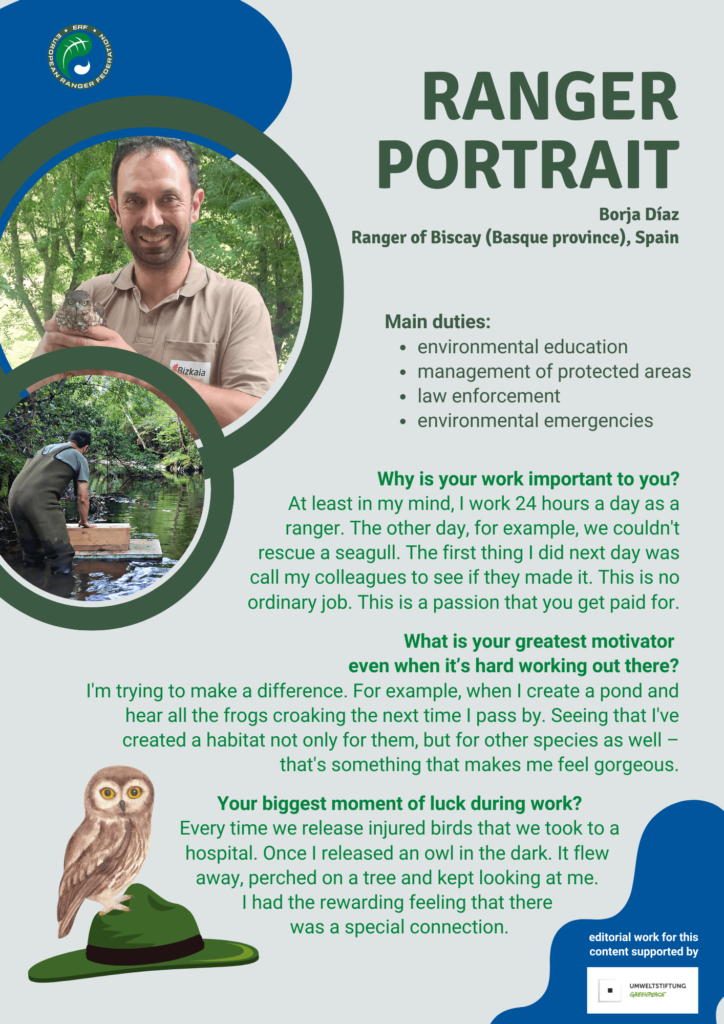
We play a key role in managing public natural areas, where we make sure visitors follow the rules and provide insight into what they can and cannot do there. We try to be environmental educators first and law enforcement second. Most of the time we’re dealing with negligence, like when someone thinks it’s a good idea to start a barbecue in the middle of a dry spell. As rangers, we have a lot of work to do with environmental education, explaining to people of all ages what the current problems are in our environment and how everyone is responsible for minimising the loss of habitats, species, etc. In addition, during the pandemic, many rangers volunteered to combat the spread of Coronavirus among the most vulnerable.
What is outstanding about nature in Spain?
Geographically, we are more or less halfway between the North Pole and the equator. So we have many different climatic zones, from alpine areas, meadows and forests to almost desert-like regions, plateaus and steppe areas – I would say it is one of the most diverse countries in Europe, as it has features of both the Northern European and Mediterranean environments.
So are the skills rangers need, I guess. How does the training for rangers work and who do they work for?
Each region in Spain has its own ranger group, and the training is adapted to the conditions there. Those who work in the mountainous regions of the Pyrenees, for example, have little to do with the tasks in the marshes on the Mediterranean. But there is a central core of ranger tasks. For this core, there are seminars organised by local ranger associations under the umbrella of the Spanish Ranger Association, where we try to share knowledge and techniques to improve our know-how. This is partly due to climate change, as some of the conditions that were unique to southern Spain are now becoming a reality in the north, such as drought, dryness and fifth generation forest fires.
“We prefer to be educators first and prosecutors second. So a lot of our work is about environmental education.”
Borja Díaz, ranger and spokesperson of the Spanish Ranger Association AEAFMA
To become a ranger, first of all, you need a secondary school diploma and must choose between several professional modules focused on forestry. You have to pass theoretical and physical tests before attending school in some regions to be trained and evaluated. If you fail here, you cannot become a ranger. All rangers are public sector employees. The difference with the rest of Europe is that we are not limited to certain protected areas. Of course, some only work in certain national parks. But you could also find a ranger in the centre of Madrid trying to rescue a falcon’s nest.
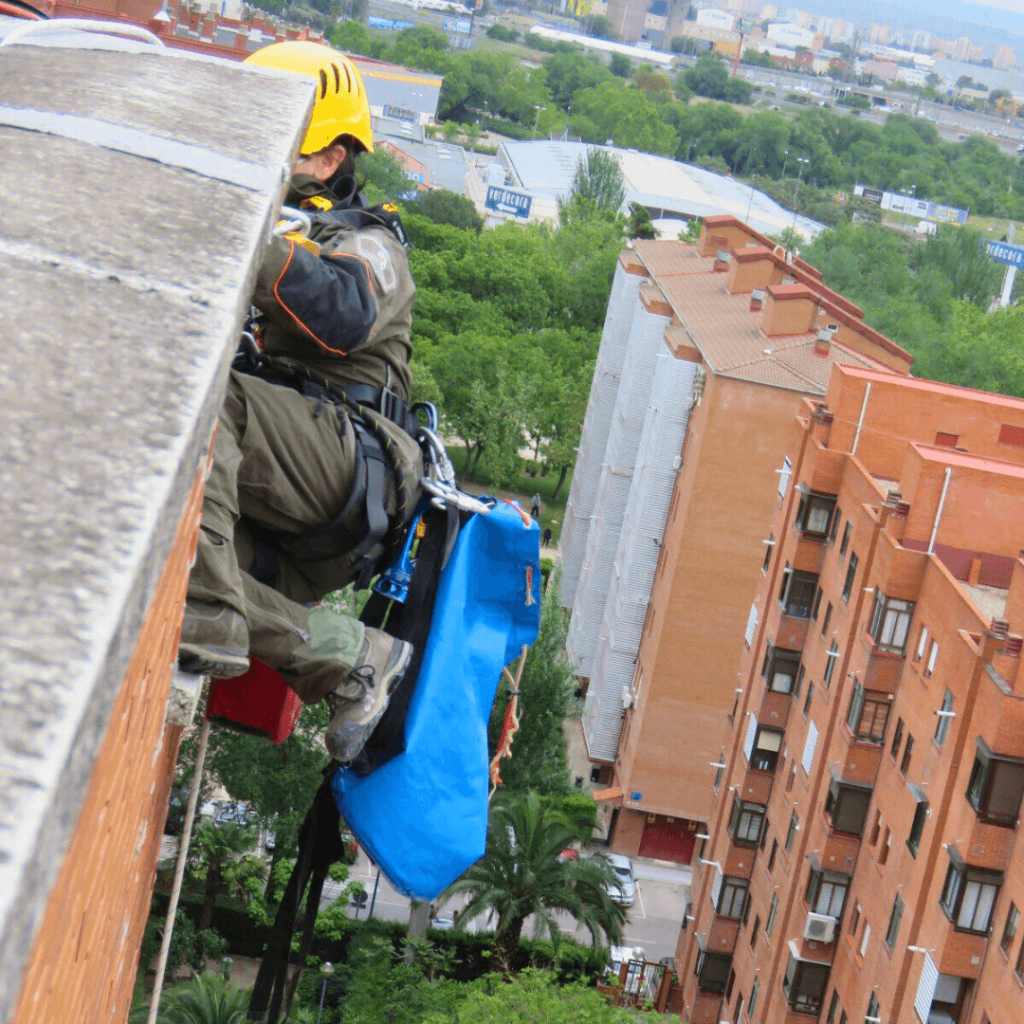
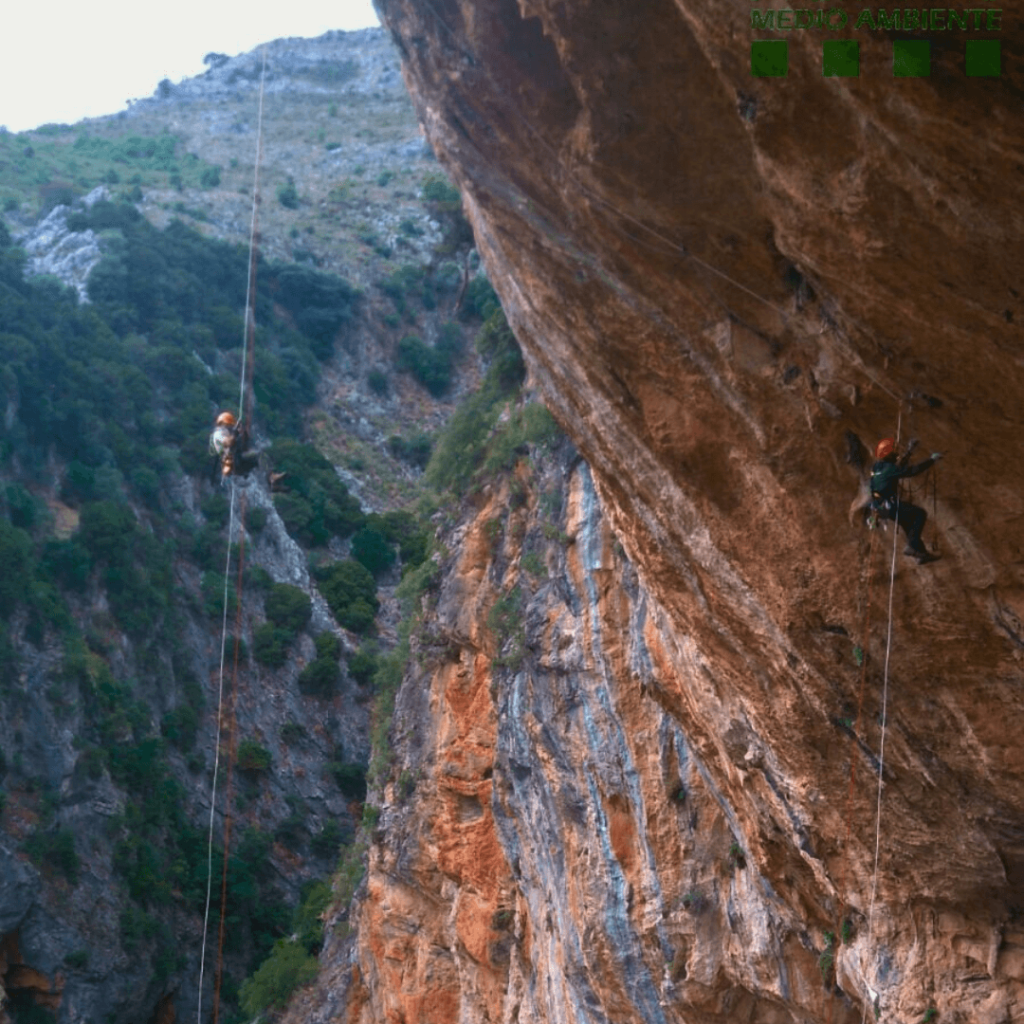
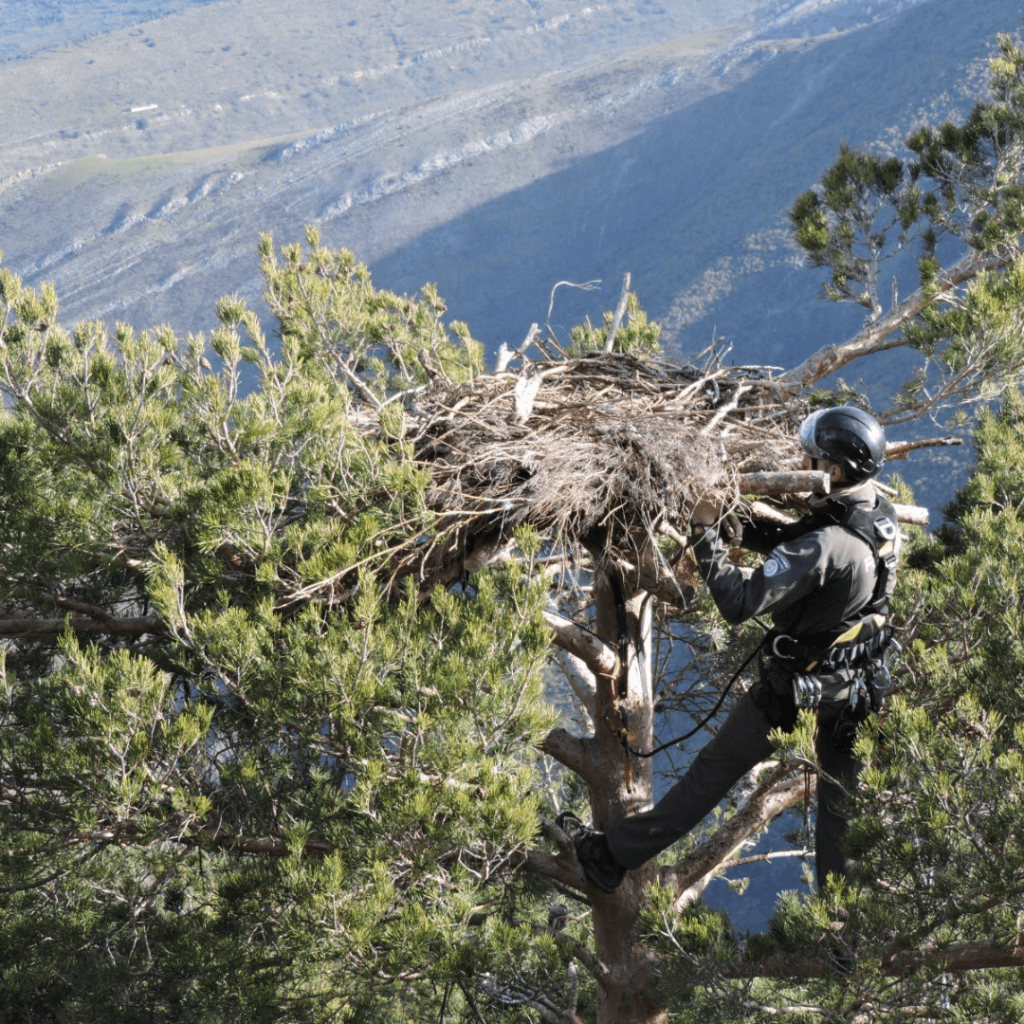
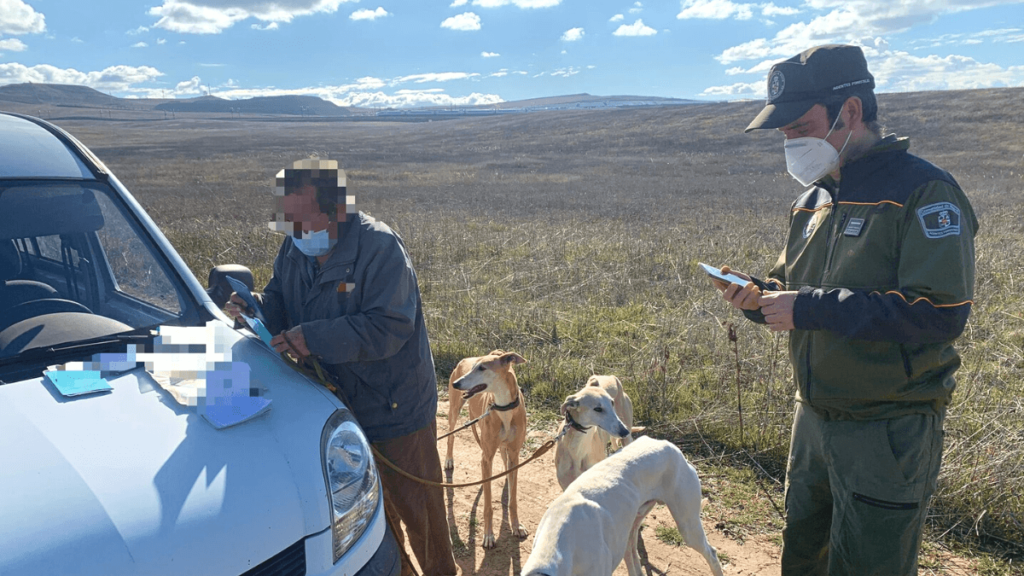
What are the current challenges that Spanish rangers face in their daily work?
We cover a wide range of tasks. In some regions, for example, the rangers are also responsible for protecting archaeological sites. So if we find people walking around with a metal detector or something like that, we have the authority to go after them. If we catch other people doing illegal construction in the middle of the forest, we are also responsible for that. We have the mandate to prosecute anything that violates environmental protection. But as I said, we prefer to be educators first and prosecutors second. When we come across minor violations, we try to educate people about the consequences and let them off with a warning. We are seen as an authority to a certain degree. Our reports are considered truth in front of a judge or jury. Unless it’s a crime that can lead to imprisonment, then we have to back up our reports with evidence.
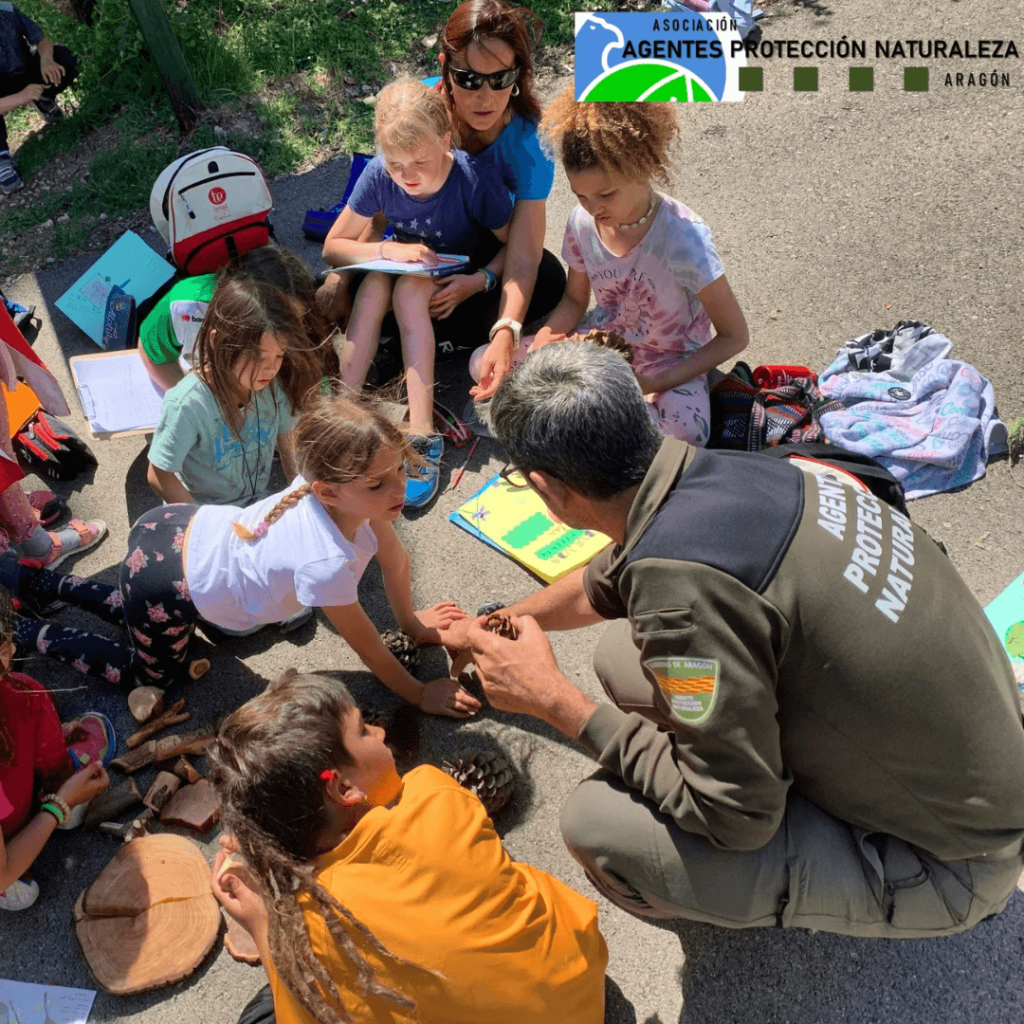
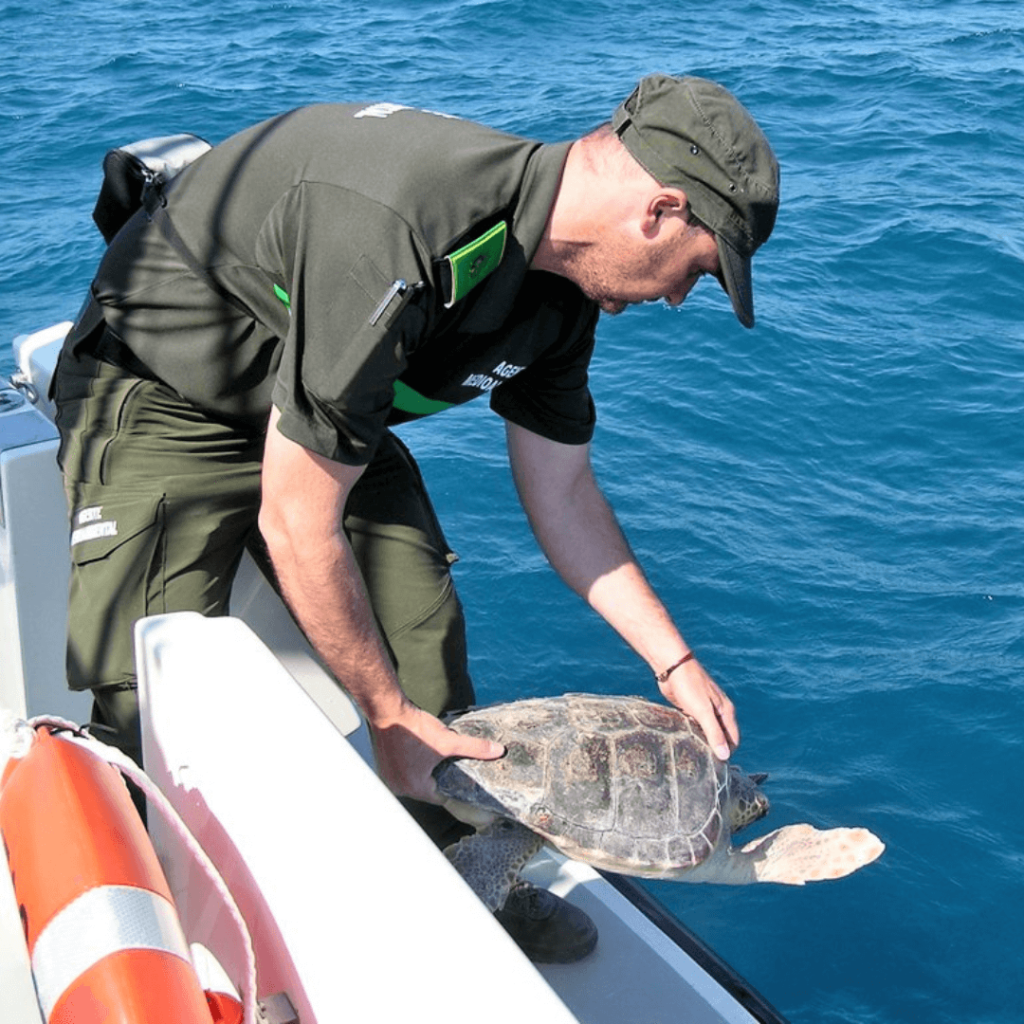
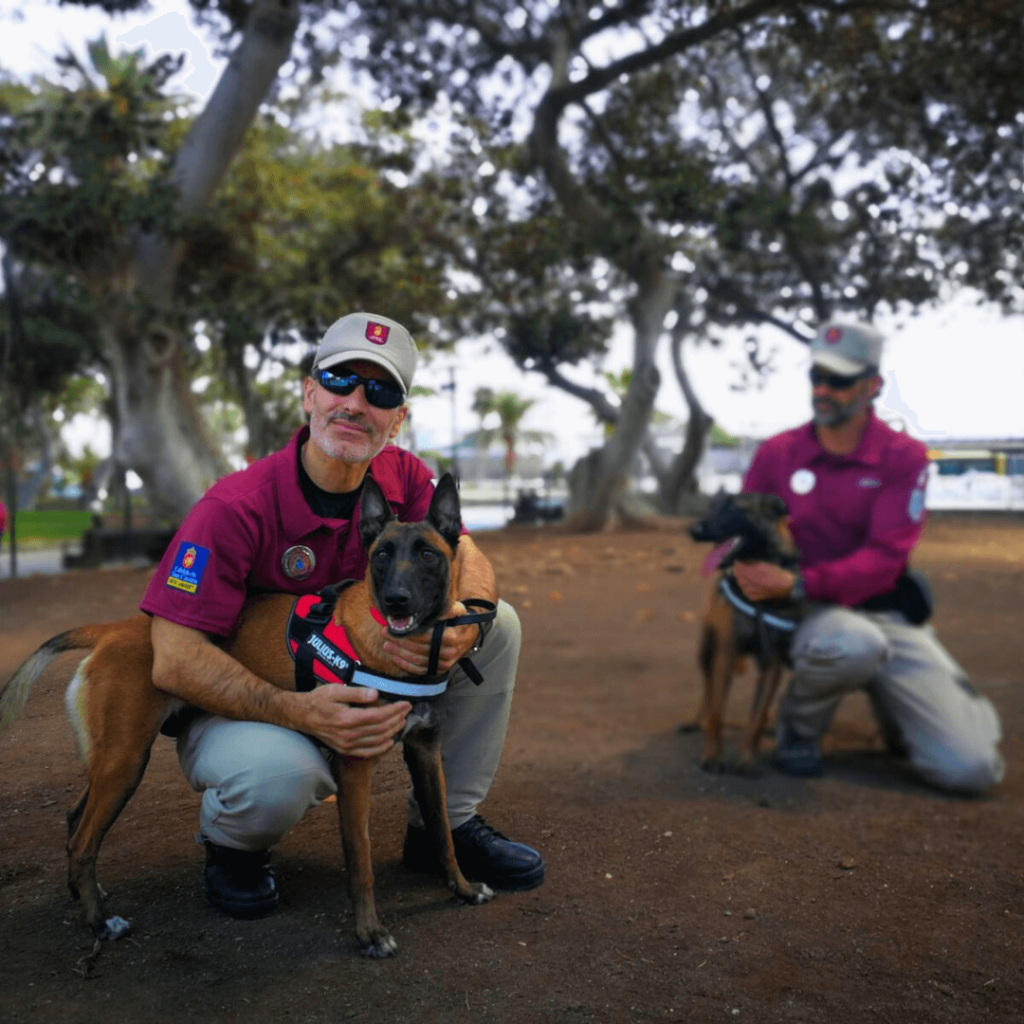
Talking of challenges: What solutions or news are there from Spanish rangers to counter them?
Recently, we have been trying to restore the environment, especially in areas where massive deforestation has occurred or where we have marshland to restore. We realised that keeping water in the ground is the first line of defence against habitat loss and forest fires. So whenever we can, we try to divert some of the water to create ponds. But we also try to improve conditions in protected areas and reduce the amount of fuel in the winter to minimise the risk of large wildfires in the summer. We create for example areas where we have just grassland. So when the fire comes there is nothing to be burned and the fire will be stopped.
What could European rangers learn from Spanish rangers?
Spanish rangers are among the few rangers who investigate fires and are very proficient at it. Investigating fires is not only about finding the offender, but also the causes that led to the fire. So we can address the problem by providing more resources or changing policies. Often the causes that created a fire are mistaken. For instance you could think of a barbecue, while it was just a bird that crossed the powerline, ignited and fell down. This knowledge could then have consequences for where the power line runs.
“Spanish rangers are very proficient in investigating fires. I think this is something European rangers could benefit from in the future.”
Borja Díaz, ranger and spokesperson of the Spanish Ranger Association AEAFMA
I think this is something that European rangers could benefit from in the future with more and more dry periods all over Europe. We also work with dogs in many places, not only to find the source of forest fires, but also to detect endangered species. For example, we have dogs that are specialised in detecting wolves. They recognise the faeces, among other things, which we can then collect and send to the lab to get a DNA map of all the wolves in the vicinity.
editorial work for this
content is supported by


